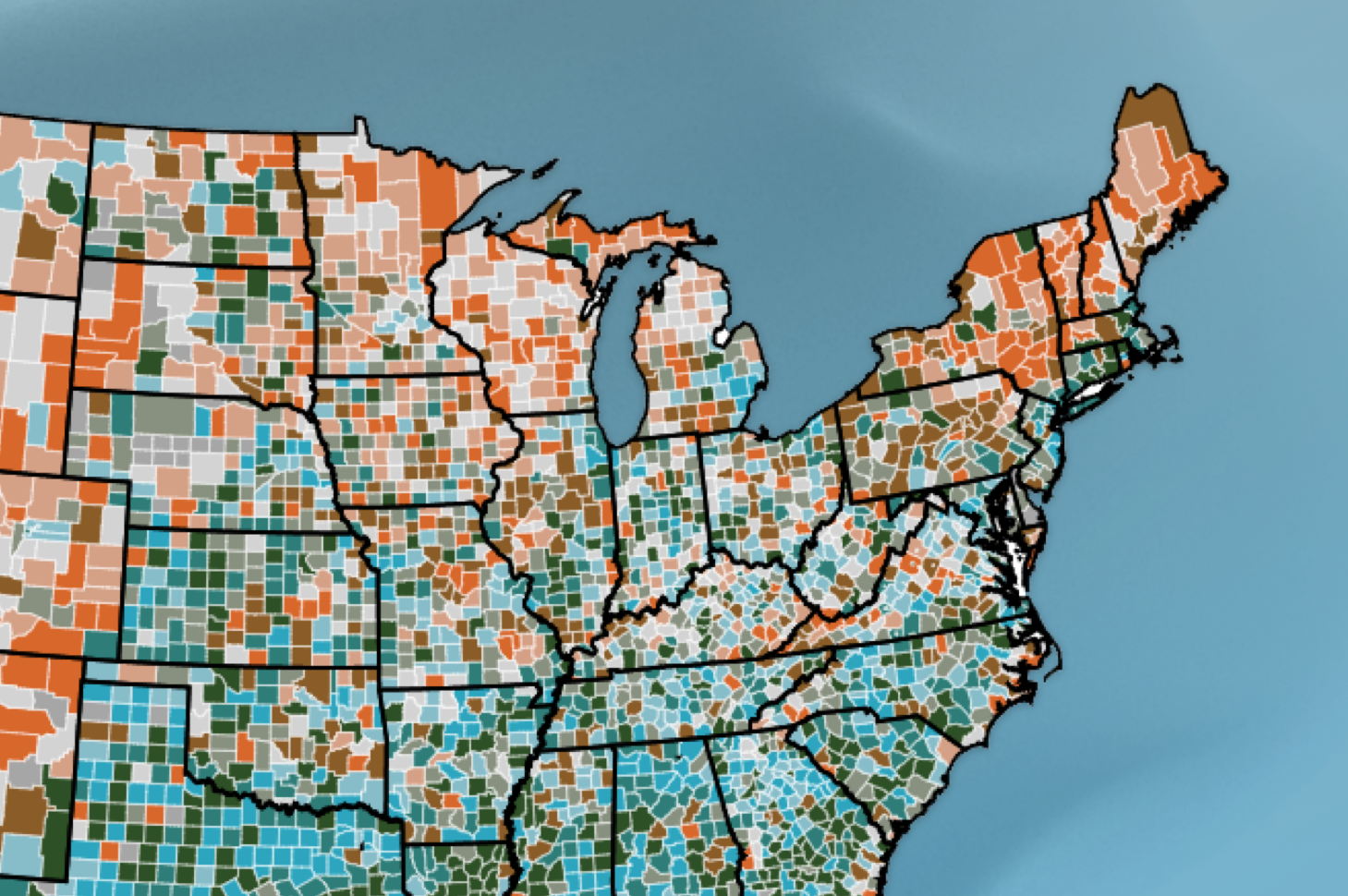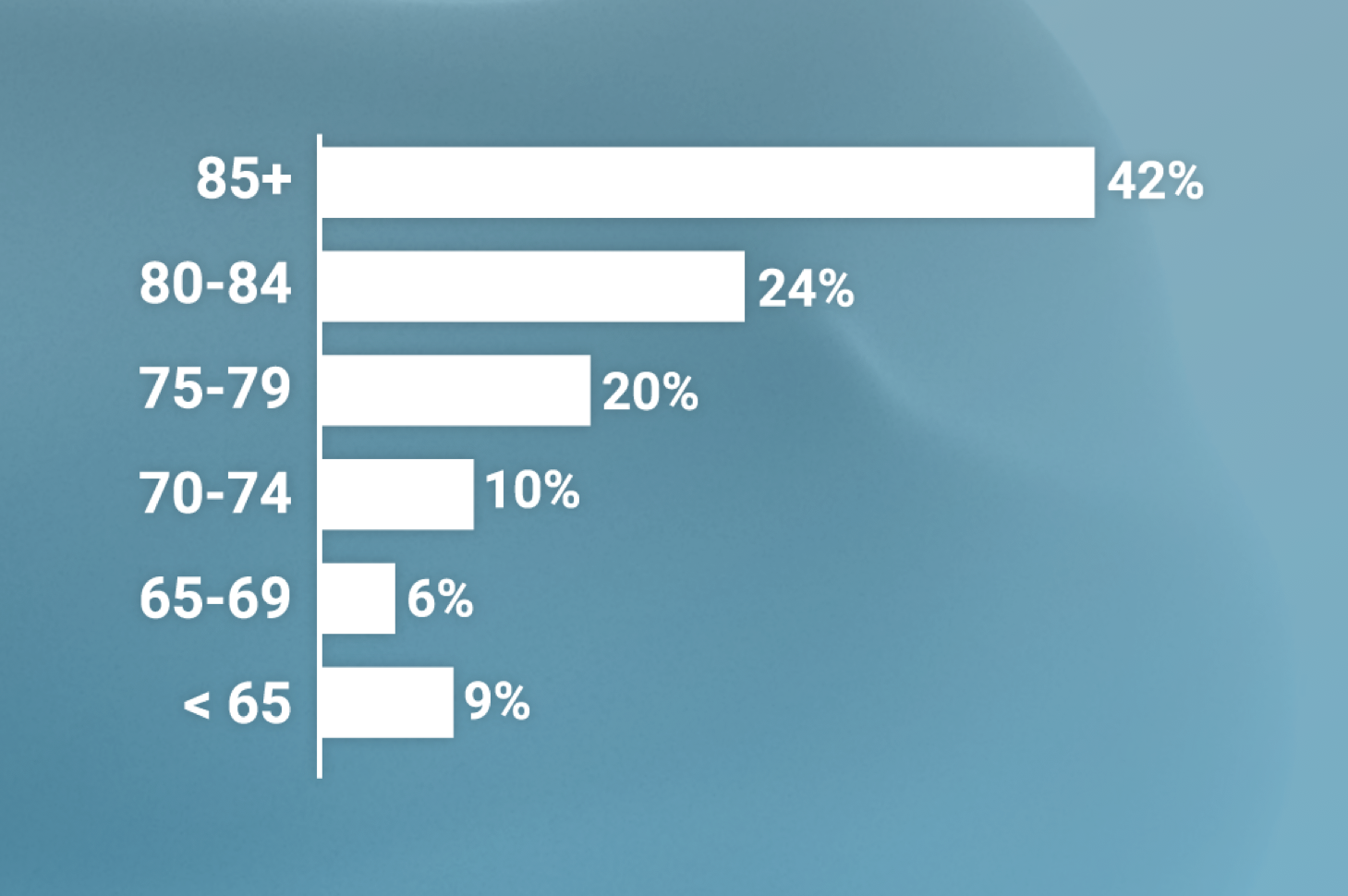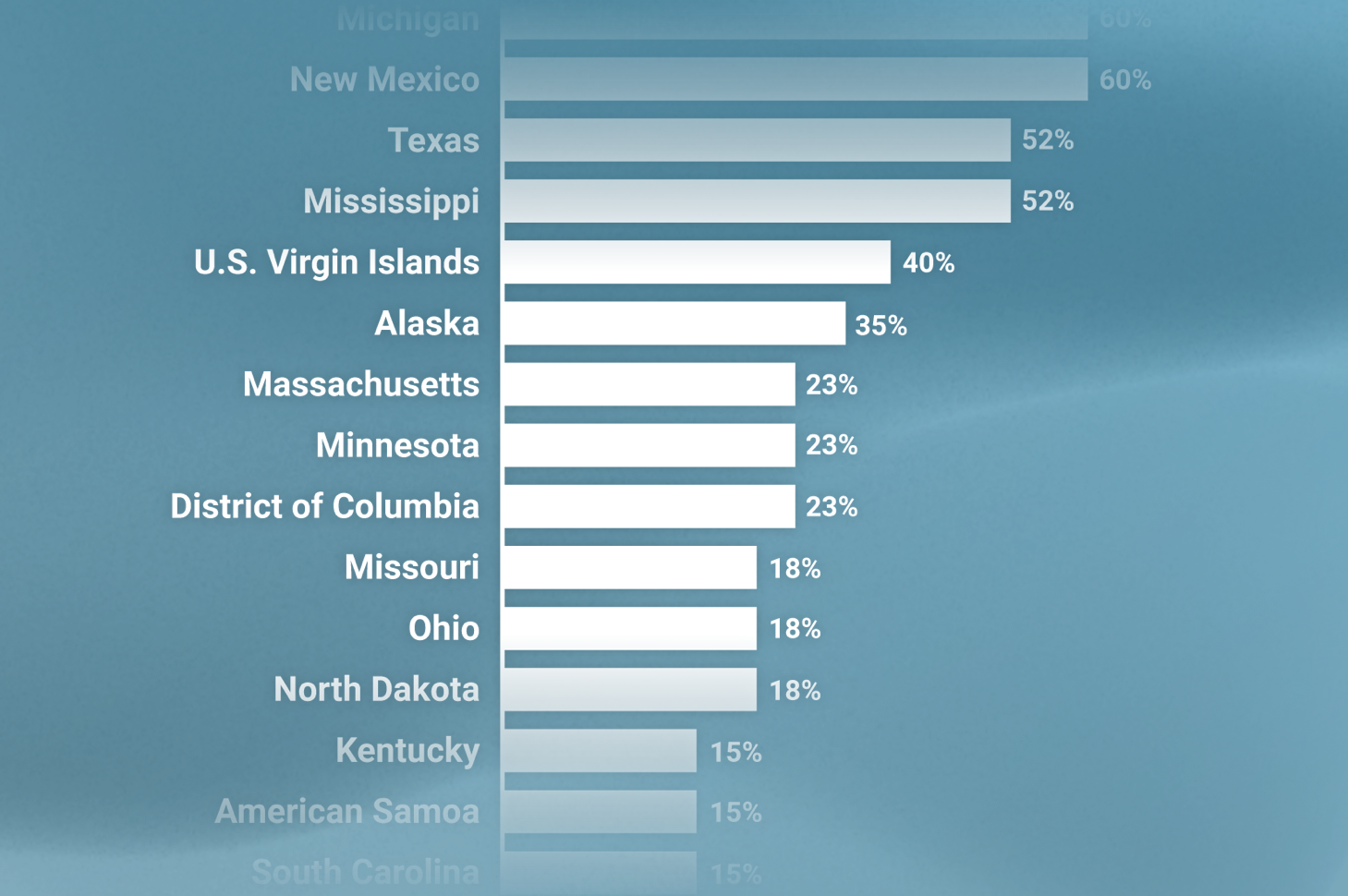Explore Dementia Data
The Dementia DataHub analyzes Medicare claims and encounter data to report the diagnosed prevalence and incidence of dementia, and its associated mortality and payments. We use the term “Dementia” to broadly refer to Alzheimer’s disease dementia and Alzheimer’s disease related dementias (AD/ADRD), and other diagnoses that are sometimes used to indicate these conditions.
We identify dementia in Medicare data using diagnosis codes. People who had diagnosis codes that specifically state Alzheimer’s or related dementias in the prior three years are classified as either “Highly Likely” (codes on at least two different service dates) or “Likely” (diagnoses on only one service date) to have dementia. The “Possible” category contains people with much less certain diagnoses such as “Mild Cognitive Impairment” and “Age-related physical debility.”
2021 data are now available. See what’s new.
In 2021, an estimated 4.2 million Medicare beneficiaries aged 65 and older were characterized as “Highly Likely,” 1.1 million were “Likely,” and 2.5 million were “Possible” to have dementia according to our system case definitions, corresponding to 7.7 percent, 1.9 percent, and 4.5 percent of all Medicare beneficiaries aged 65 and older.
Percentages above rounded to nearest whole number.







